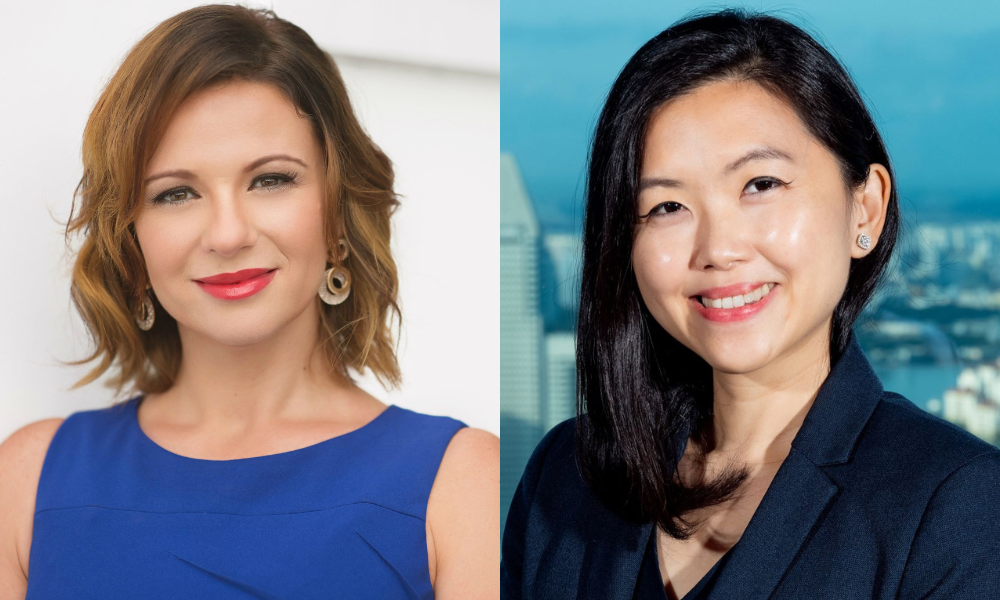
'Generations week' a 'wonderful opportunity to bring different generations together to communicate and to be heard in a safe space,' says ERG rep at HSBC

Recently, HSBC kicked off a new initiative called “Generations Week.”
The event gave staff opportunities to discuss the different generations and ask questions such as ‘Which generation do you feel is the most misunderstood?’
“There wasn’t a multigenerational day in the UN calendar, so we created ‘Generations Week’ at HSBC,” says Sue Anne Tay (pictured right) MD at the office of the Asia Pacific Co-CEOs. “It involved global events and also we encouraged different markets on the ground to have their own.”
Tay co-chairs the global employee resource group (ERG) at HSBC which focuses on multigenerational diversity.
This approach makes a lot of sense, judging by a recent report from XYZ at Work, which looked at how the different generations define purpose.
For example, while 88% of Gen Z respondents see social input as a priority when seeking work, only 71% of Baby Boomers view this as paramount.
The findings point to the benefits of employers understanding the differences between generations’ priorities and adopting a proactive approach to multigenerational workplaces, says Rachele Focardi (pictured left), founder and CEO of XYZ at Work.
Embracing multigenerational opportunities can be an organisation’s superpower, she says.
“The way to really understand and leverage the full power of generational diversity is to recognise that it exists, and that it makes us stronger.
“On average, 95% of employees across generations say that [generational differences are] critical and should be talked about, but that companies don't do enough of it. And only 20% of HR leaders say they're committed to it.”
The first step towards this element of DE&I is a to elevate the conversation, acknowledging “generational diversity makes us stronger, and then set a narrative around it that every generation can feel empowered by,” says Focardi.
Focardi helped kick off the Generations Week at HSBC – which has around 219,000 employees across the world – with a masterclass about ‘thriving in the multigenerational workplace.’
At the global level the masterclass included details of four generations represented within the business, from Baby Boomers and Gen X to Millennials and Gen Z . It covered differences of each group; for instance, around perceptions and interpretations, and showed how generational differences can manifest in the workplace.
In addition, a guidebook was created to help foster the dialogues for smaller groups.
“In every market, they had their own activities,” says Tay. “A fun one was ‘Games from your childhood’, which were very different, and depending on the cultures, some held family days. Of course, there were also very serious conversations conducted in a more formal setting.
“The week is a wonderful opportunity to bring different generations together and for people to communicate and to be heard in a safe space – that’s very important.”
The event also provided opportunities for leaders to understand their workforce through a new lens, says Tay.
“There are different lenses: for instance, there's a global lens, cultural lens, gender lens - different lenses for how you want to advocate for the best for your employees. Generations is a helpful lens to look at, in terms of understanding backgrounds and values. And it also then helps understand how conflicts in a workplace manifest.”
It’s an ongoing journey, Tay says, with the employee resource group continuing to address issues that people raise. There are even thoughts about the possibility of moving to generational training.
Adding this element to an organisation’s DE&I strategy can only be beneficial, says Focardi. Multigenerational workplaces have “a competitive advantage” she says, and should be a boardroom level conversation.
“There is really no diverse team that covers as many blind spots in decision making as a multigenerational one,” she says. “You can have different cultures, different genders, all those are amazing things, but when you have different generations who are fundamentally time capsules, and they can come in with their own way of solving problems, their own way to look at an issue, their own way to use technology, their own experience, knowledge and perspective, then all of a sudden you pretty much become invincible.”
The generational lens is sure to help HR ascertain how best to attract and retain talent, adds Tay: “I hold my HR colleagues in high regard - they're constantly grappling with what the future of the workplace looks like.
“How to attract more talent, how to retain talent, roll out training and ensure employee benefits continually evolve to fit the needs of employees. Are we advocating the right skill set? These are not all rooted and to be solved with just a generational lens, but the generational lens is an added tool and enabler to address these challenges.”
For generational diversity, Focardi recommends the following strategies: